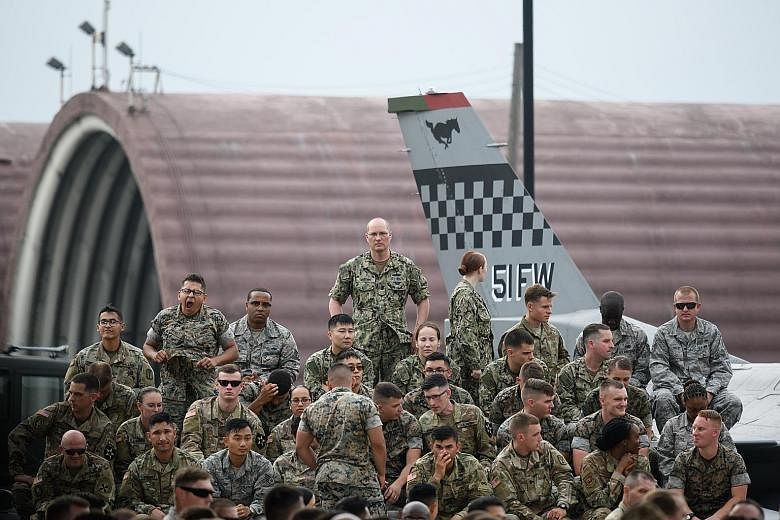WASHINGTON • The US has said that South Korea's decision to pull out of an intelligence-sharing deal with Japan endangers American troops - an unusually blunt criticism of one of Washington's closest allies.
The Trump administration is disappointed in South Korean President Moon Jae-in's announcement last week that his government would stop participating in the 2016 General Security of Military Information Agreement with Japan, US State Department spokesman Morgan Ortagus said on Sunday.
The pact allowed the two neighbours to directly share intelligence about joint security concerns, including on North Korea and China, without going through the US.
"We are deeply disappointed and concerned that the ROK's government terminated the General Security of Military Information Agreement," Ms Ortagus said in a Twitter post, referring to South Korea by its official name. "This will make defending #Korea more complicated and increase risk to US forces."
The criticism is perhaps the clearest sign yet of the Trump administration's frustration with the months-long feud between South Korea and Japan.
Over the weekend, US President Donald Trump criticised Mr Moon and his government at a Group of Seven meeting in France, the Sankei newspaper reported, citing unidentified Japanese government sources.
The acrimonious dispute is rooted in historical grievances over Japan's 1910-45 occupation of the Korean peninsula, but has recently escalated to include trade and security cooperation.
While South Korea and Japan are protected by tens of thousands of US troops, the Moon administration had argued after withdrawing from the pact that it would strengthen its alliance with the US by increasing defence spending.
The dispute risks complicating a coordinated response to North Korea's continued missile tests and China's rising military power projection in the region.
Last Saturday, North Korean leader Kim Jong Un personally guided the test-firing of a rocket launcher and sent short-range ballistic missiles into the sea between South Korea and Japan for the 18th and 19th tests since May.
The US Department of Defence had previously expressed "strong concern and disappointment" with South Korea's decision to exit the security pact.
While the agreement does not require the exchange of intelligence and both countries are part of a similar three-way pact with the US, the deal was significant because it demonstrated their ability to cooperate independently from Washington.
BLOOMBERG

